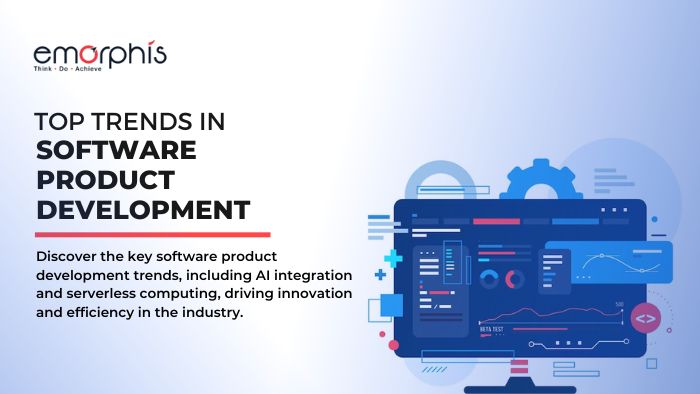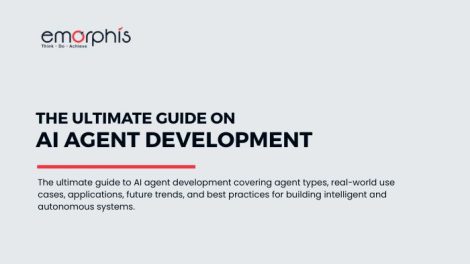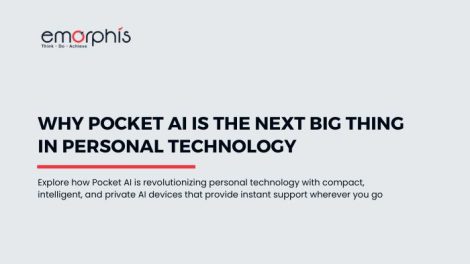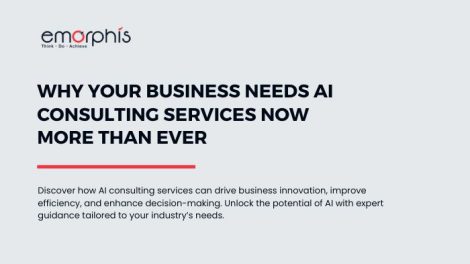Introduction to Software Product Development Trends
In today's fast-paced digital landscape, the field of software product development is constantly evolving. Keeping up with the latest trends and technologies is not just a choice but a necessity for staying competitive in the market. In fact, the software industry is known for its dynamism, where innovation is the key to success. Moreover, the COVID-19 pandemic has accelerated the pace of digital transformation, making it imperative for software developers to adapt and embrace new approaches. In this article, we'll explore the top trends in software product development that are shaping the industry's future.
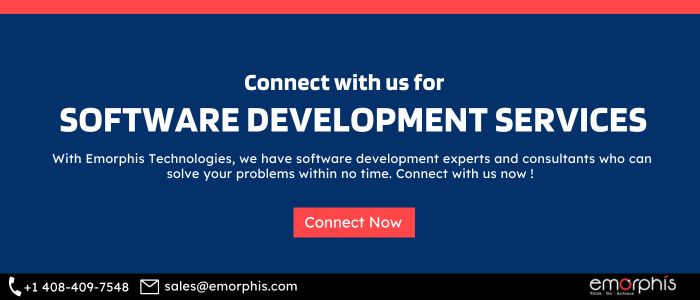
Software product development technologies are experiencing a constant evolution. Driven by the need for innovation, efficiency, and moreover user-centric solutions. Among the most prominent trends are the integration of Artificial Intelligence (AI) and Machine Learning (ML), which are reshaping how applications process data, make decisions, and provide personalized user experiences. Furthermore, cloud-native development has become the standard for scalability and flexibility, enabling software to harness the power of cloud resources.
Low-code and no-code platforms are democratizing development, allowing both technical and non-technical stakeholders to participate in the creation of software solutions. Additionally, security-first approaches are vital in an era of increasing cyber threats, emphasizing the importance of proactive security measures throughout the development process. As software becomes more interconnected with the Internet of Things (IoT) and harnesses the potential of blockchain, these technologies are further driving innovation in the software product development landscape.
Check our details on Software Product Development Services
These trends, along with others like edge computing and cross-platform development, collectively shape the future of software technology, promising exciting possibilities for developers and users alike.
Let us look at some of them in detail.
Top Software Product Development Trends
1. Agile and DevOps Integration
One of the most significant trends in software product development is the seamless integration of Agile methodologies with DevOps practices. This combination not only enhances collaboration between development and operations teams but also accelerates the development cycle. As a matter of fact, Agile principles, such as iterative development and continuous feedback, align perfectly with the goals of DevOps, which aims to automate and streamline the entire software delivery pipeline. This synergy allows teams to deliver software more efficiently, with shorter release cycles and improved product quality.
Check details of our offerings in DevOps Services
2. Microservices Architecture
In recent years, microservices architecture has gained significant traction in the software development world. Microservices decompose intricate applications into smaller, autonomously deployable service components.
This approach offers several advantages, including improved scalability and easier maintenance. Moreover, in fact, microservices allow development teams to work on specific components of an application concurrently, fostering agility and reducing development bottlenecks. As a result, software products built on microservices are better equipped to handle the demands of modern, rapidly evolving markets.
3. Artificial Intelligence and Machine Learning Integration (AI & ML)
Artificial Intelligence and Machine Learning are not just buzzwords; they are transforming software product development. AI and ML algorithms enable software to learn and adapt to user behavior, providing highly personalized experiences. Moreover, in fact, AI-driven analytics can uncover valuable insights from data, aiding in data-driven decision-making. Whether it's chatbots enhancing customer support or recommendation engines improving user engagement, integrating AI and ML into software products is becoming a necessity to stay competitive.
Generative AI, a subset of artificial intelligence, is revolutionizing software product development. This technology empowers developers to automate various aspects of the development process, from code generation and design to content creation. Generative AI models, like GPT-3, can generate human-like text, which is particularly valuable for chatbots, content generation, and natural language interfaces in software products. Moreover, generative AI can assist in generating code snippets, accelerating development tasks, and reducing human error. It's a powerful tool for boosting productivity, streamlining workflows, and enhancing the overall quality and efficiency of software product development. As generative AI continues to advance, its role in shaping the future of software development is becoming increasingly significant.
Check the complete details on AI in Software Development
4. Cloud-Native Development
Cloud-native development is another trend that has gained immense popularity. Building software products that can leverage cloud computing resources offers unparalleled scalability and flexibility. Moreover, cloud-native applications are easier to maintain and update, as updates can be seamlessly rolled out without disrupting services. In fact, many businesses are migrating their legacy systems to the cloud to harness these advantages and stay competitive in today's digital landscape.
Connect with us for Cloud-native App Development Services
5. Low-Code and No-Code Development
Low-code and no-code development platforms are revolutionizing software development. These platforms empower not only professional developers but also non-technical stakeholders to participate in the development process. Moreover, they accelerate development by providing pre-built components and drag-and-drop interfaces. In fact, organizations are finding that low-code and no-code platforms are ideal for rapidly prototyping and delivering software solutions, reducing time-to-market and development costs.
Look at our Cloud Application Development Services
6. Security-First Development
As the digital world expands, security becomes paramount in software product development. Integrating security measures from the outset is no longer an option—it's a necessity. In fact, security breaches can have devastating consequences for businesses and their users. Moreover, implementing security as a foundational element ensures that data remains protected, user trust is maintained, and potential threats are mitigated. As a matter of fact, adopting a security-first approach minimizes vulnerabilities and strengthens the overall resilience of software products.
Check the guide to elevate your cloud security with Cloud Security Assessment details.
7. User-Centric Design and UX Trends
User experience (UX) has always been crucial, but it's taking center stage in software product development. User-centric design principles, coupled with emerging UX trends, are transforming the way software is created. Moreover, user feedback and behavior analytics are driving continuous improvements. In fact, prioritizing the user experience not only enhances customer satisfaction but also increases user retention and loyalty. Software products that provide intuitive, engaging, and delightful experiences are more likely to succeed in the competitive marketplace.
8. IoT (Internet of Things) Integration
The Internet of Things (IoT) is reshaping various industries, and software development is no exception. Moreover, IoT integration allows software products to interact with an array of connected devices, enabling smart and seamless experiences. In fact, IoT-driven applications are being used in areas such as home automation, healthcare, and industrial processes, opening up new avenues for innovation and product development.
Check the details of our offerings in IoT App Development Services
9. Blockchain in Software Development
Blockchain technology is making waves in the software development realm, offering enhanced security, transparency, and trust. Moreover, blockchain applications are not limited to cryptocurrencies; they extend to supply chain management, digital identity verification, and more. In fact, by utilizing blockchain, software developers can create products that ensure data integrity and build trust among users and stakeholders.
10. Edge Computing
The advent of edge computing is revolutionizing software development by bringing processing closer to the data source. Moreover, edge computing reduces latency, enabling real-time data processing and enhancing the performance of applications. In fact, it's particularly valuable in scenarios where immediate responses are critical, such as autonomous vehicles and industrial automation.
11. Quantum Computing Implications
While quantum computing is still in its infancy, it's poised to impact software development significantly. Moreover, quantum computing has the potential to revolutionize cryptography, solve complex problems faster, and optimize various processes. In fact, as the technology matures, software developers will need to explore how quantum computing can be leveraged to create more powerful and efficient software solutions.
12. Ethical and Sustainable Software Development
Ethical considerations and sustainability are increasingly important in software product development. As a matter of fact, data privacy, responsible AI, and reducing the environmental impact of software are becoming focal points for businesses and developers alike. Moreover, software products that adhere to ethical standards and sustainable practices not only benefit society but also enhance a company's reputation and market competitiveness.
13. Cross-Platform Development
With users accessing software on a variety of devices and platforms, cross-platform development is gaining momentum. Moreover, cross-platform frameworks and tools simplify the process of building applications that work seamlessly across different environments. In fact, by adopting cross-platform development, organizations can reach a broader audience and reduce development time and costs.
Check the details of our Cross-Platform App Development Services
14. Containerization and Kubernetes Orchestration
Containerization, exemplified by technologies like Docker, has become a cornerstone in modern software development. Containers package applications and their dependencies into portable, isolated units, making it easier to develop, test, and deploy software across various environments consistently. Kubernetes, an open-source container orchestration platform, complements containerization by automating the deployment, scaling, and management of containerized applications. This trend enables developers to build more efficient, scalable, and resilient software products.
15. Serverless Computing
Serverless computing, also known as Function-as-a-Service (FaaS), is gaining momentum as a trend in software product development. With serverless, developers can focus solely on writing code for specific functions or microservices without the need to manage servers or infrastructure. Cloud providers like AWS Lambda, Azure Functions, and Google Cloud Functions offer serverless platforms that automatically scale resources based on demand. This approach simplifies development, reduces operational overhead, and optimizes costs, making it an attractive choice for building scalable and cost-effective software products.
Conclusion and Future Outlook
In conclusion, the field of software product development is undergoing a profound transformation driven by a multitude of trends and technologies. Moreover, as these trends continue to evolve, software developers must remain adaptable and innovative.
In fact, embracing these trends and staying informed about emerging developments is the key to building successful and competitive software products in the future. As a matter of fact, the software industry will undoubtedly continue to surprise us with groundbreaking innovations and exciting possibilities in the years to come. Stay tuned for further updates on this dynamic and ever-changing landscape.
Recommend to read Demystifying Software Development Challenges, Revolutionizing Industries with Next-Gen Solutions



